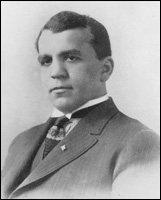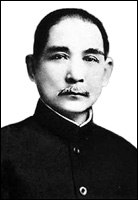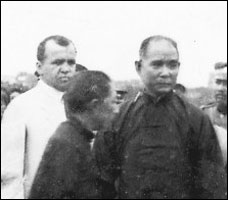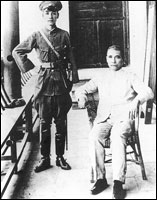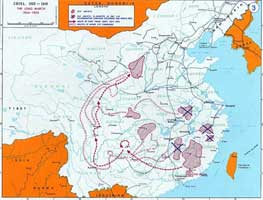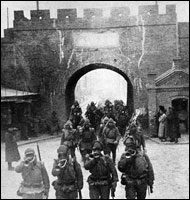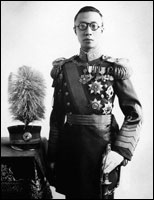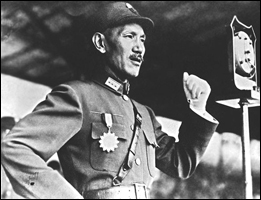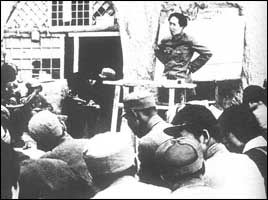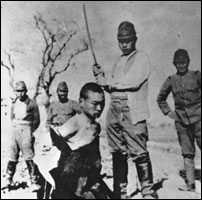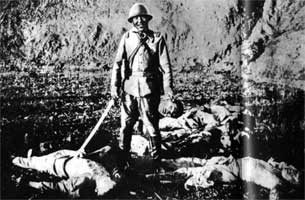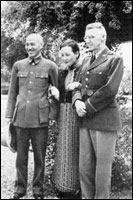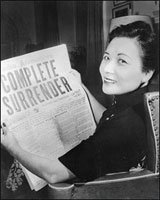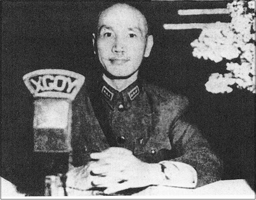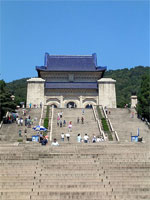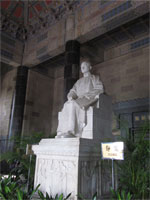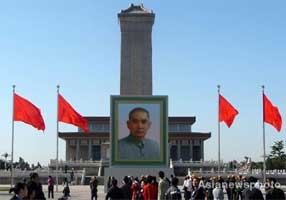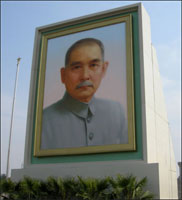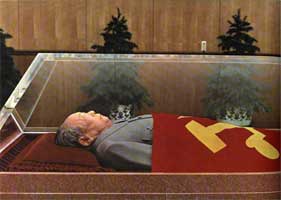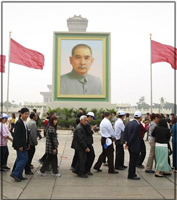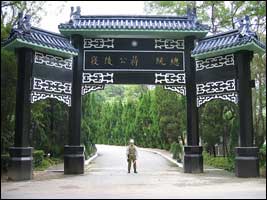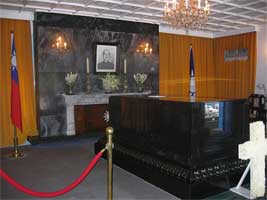| The
Gang of 4 British spies were: Winston Churchill, Adolf Hitler,
Joseph Stalin, and Mao Zedong!! |
BRITISH SECRET SERVICE AGENT MAO ZEDONG!!
After the defeat of the British-German coalition in World War I, bulldog Winston Churchill decided to try again. This time he was confident of success because he planned on opening a second front against Russia in the East. That second front was the island nation of Japan.
A great Chinese patriot and devout Christian named Dr. Sun Yat-sen threatened to undo all his careful planning for another world war. Sun Yat-sen was about to enter Peking in triumph, and be acknowledged as the President of a united nation. Instead, he enter as a sick man on the point of death–poisoned by British Secret Service agent Morris "Two-Gun" Cohen.
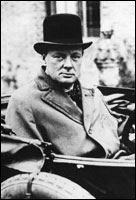
Winston Churchill circa 1925. |
|
Cohen grew up in the East End of London, in the very neighborhood where Churchill's step-brother, Prince Jack the Ripper operated. At age 16, Cohen graduated from Lord Rothschild's school for juvenile delinquents and he was immediately shipped off to Canada to put his spying skills to work.
All throughout the Dark Ages in Europe, the fake "Jews" were known as expert poisoners. Even Popes used them to get rid of rivals!!
After arriving in China from Canada in December 1922, Cohen was able to have himself appointed "bodyguard" to Sun Yat-sen. Cohen's spying cover in in Canada was petty criminal, thief, pimp, bootlegger, and devout JEW:
The next day Cohen returned to Rue Molière. Sun examined the railway contract. All appeared in order. When C. V. Cummins's ship docked a fortnight later Cohen met him at the pier. Sun and Cummins signed the contract. The following day Cohen rode back to Sun's home to give Sun the hard sell. Cohen turned on his best salesman charm and snagged the job he wanted, that of a bodyguard to the revered leader of China and China's dispossessed. Sun bestowed upon Cohen the title of fuguan, adjutant. Cohen's plans were complete. He soon adopted the pidgin name of Kow-hen. Later he would be occasionally referred to as the Chinese sounding Ma-Kun. Yet Cohen had little use for the new appellation or the brothel-type Cantonese he had picked up in Canada. Most of Sun's entourage spoke English. Sun had been educated in Honolulu and Hong Kong. His bright, and beautiful wife and her sisters and brothers had studied in the United States, and many of his underlings attended western-run Chinese schools. (Levy, Two-Gun Cohen, p.118).
With such a great Christian leader as Dr. Sun Yat-sen, China was well on its way to becoming a great and glorious Republic like the United States.
Sun Yat-sen is revered by all Chinese as the founder of their Republic. He is literally the George Washington and Abraham Lincoln of China. He was also a devout Christian whose whole life was given to one purpose: the liberation of his people from superstition, despotism, and colonialism.
|
Before his greatest victory, when he should have entered Peking in triumph, he entered as a sick man on the point of death. After an operation in the Rockefeller financed Peking Union Medical College, he went to reign with the true Son of Heaven on March 12, 1925.
Cohen did not want to shed any "crocodile tears" at his funeral so he left for Canada just before the President died:
As Sun lay in bed in Beijing, the Chinese in Vancouver feted Cohen as a returning hero. "As soon as the Chinamen found out who he was, they certainly showered him with attention giving us a special dinner for which we were not permitted to pay," recalled Lee Sereth, who visited Chinatown that winter with Cohen. By January, Cohen the dandy, wearing spats and sporting the false title of "General" arrived in Edmonton. He regaled his friends with tales of the Orient, informing them that during the Canton Customs Crisis Sun wanted him to take over the running of the customs. (Levy, Two-Gun Cohen, p.138).
General Chiang Kai-shek–a brother-in-law and fellow Christian–took up the mantle of the martyred President.
|
Churchill created the Communist Party in China in order to assist the Japanese when they invaded Manchuria. This was to assist his fellow spy Adolf Hitler when he invaded from the West.
Mao Zedong's "Long March" toward Manchuria!!
After the assassination of President Sun Yat-sen, petty criminal Morris Cohen became the BANKER and financier for the "Communist" Party. The "Long March" was toward Manchuria, which was conquered by the Japanese in 1931, with no resistance from the "Communists."
|
Follow the footsteps . . . and the finances . . . of Mao Zedong and his "Communists" and they lead right to Blenheim Palace and the Bank of England. A typical British Secret Service false flag operation gave the Japanese an excuse to invade Manchuria. The Japanese made the deposed Xuantong Emperor the new ruler of their colony.
|
As planned, Mao did nothing to oppose the Japanese when they invaded China in 1937. That burden fell to the army of generalissimo Chiang Kai-shek
|
For the man who said that "political power grows out of the barrel of a gun" he did very little shooting at the Japanese invaders. On the other hand, he had a very close relationship with fellow agent Joseph Stalin.
|
Despite the terrible casualties, the Chinese fought on to liberate their country. One of the reasons why the Japanese decided to attack Pearl Harbor instead of Russia was the high price that the Chinese were making them pay for invading their country.
A British spy was assigned to "help" general Chiang Kai-shek!!
In December 1941, Churchill ordered the Japanese to attack Pearl Harbor because he wanted to draw the United States into the war. By that time it was apparent to all that Germany would lose without Japanese help from the East. The brave Chinese were still not defeated, and the Japanese army, despite help from the "Communists," was in no condition to invade Russia from Manchuria.
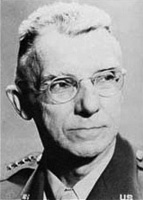 General Joseph Stilwell (1883-1946). |
|
|
The United States campaign against Japan was a total waste of good lives. All that was needed was to send all the arms that China required, and they would quickly take care of the "dwarf bandits." That was not to happen, as British spies Marshall and Stilwell opposed every military campaign of Chiang.
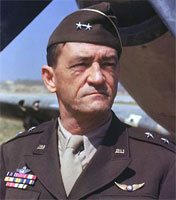 General Clair Chennault (1893-1958). |
|
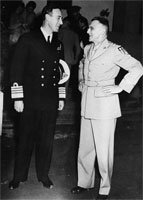 Stilwell and his boss Mountbatten in Burma, in 1943. |
Generalissimo Chiang Kai-shek was so desperate for help that he sent his own wife on a mission to the United States. President Roosevelt came to the train station to meet her, and he appeared to be very sympathetic to the plight of China.
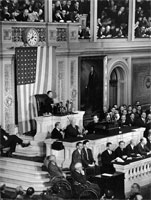 Madame Chiang Kai-shek addressing a Joint Session of Congress. |
|
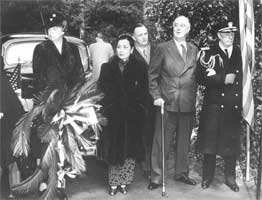 Eleanor Roosevelt, Franklin Roosevelt, and Madame Chiang Kai-shek at Mount Vernon, Feb. 1943. |
The President appeared to be sympathetic, but Stillwell despised Roosevelt, and called him "rubber legs." Stilwell's fellow spies in the Pentagon sabotaged every attempt that the President made to help China. Madame Chiang reminded Roosevelt that the U.S. entered WWII because of the Japanese attack on Pearl Harbor. She begged him to forgo Churchill's self-serving "Hitler must be defeated first strategy."
The war in the Pacific was only ended by the dropping of 2 atomic bombs on Japan. That too was unnecessary because the Chinese would have ended the war without any U.S. casualties . . . if only they were supplied with arms and ammunition.
|
World War II officially ended on September 2, 1945, on the battleship Missouri. Again, Chiang was not invited to the surrender ceremony, and the Chinese were given no role in the occupation of Japan.
Over 1 billion Chinese are ready to adopt the Christian Faith of Sun Yat-Sen!!
Over 1 billion Chinese people are tired of British Communism and they are ready to adopt the Faith of Sun Yat-sen which is catholic and universal Christianity.
|
2011 was the centenary of the Republic of China so a banner of Dr. Sun Yat-sen was installed in Red Square.
|
Communism is worse than opium because opium kills the body but Communism kills the soul.
Unfortunately, there is a wax dummy of British spy Mao Zedong close to the portrait of the Chinese Abraham Lincoln. The life-like dummy was probably made at Madame Tussaud's in London. Communists and atheists always prefer cremation because they think the Almighty won't be able to put their bodies back together again for Judgment Day!!
|
Mao said that he wanted to be cremated after death. Communists and atheists always prefer cremation because they think the Almighty won't be able to put their bodies back together again for Judgment Day!!
|
British spy Karl Marx said that "religion is the opiate of the people." As a matter of fact, Communism is the opiate of the people. Chinese people are much too intelligent to be Communists . . . or Fascists.
The time for China to reunite under the banner of true Christianity is NOW. The typical British Empire strategy is divide and conquer. We see that in India, Africa, South America, Ireland etc., etc. The true Son of Heaven said:
And Joshua knew their thoughts, and said unto them, "every kingdom divided against itself is brought to desolation; and every city or house divided against itself shall not stand (Matthew 12:25).
Vital links
Chang, Jung & Halliday, Jon. Mao: The Unknown Story. Alfred A. Knopf. New York, 2005.
Bergère, Marie-Claire, Sun Yat-sen. Stanford University Press, Stanford, California, 1994.
Deacon, Richard. The Chinese Secret Service. Ballantine Books, New York, 1974.
Drage, Charles. The Life and Times of General Two-Gun Cohen. Funk & Wagnals Company, New York, 1954.
Hanes, W. Travis & Sanello, Frank. Opium Wars: The Addiction of One Empire and the Corruption of Another. Barnes & Nobles, New York, 2002.
Pakula, Hannah. The Last Empress: Madame Chiang Kai-shek and the Birth of Modern China. Simon & Schuster, New York, 2009
Levy, Daniel S. Two-Gun Cohen: A Biography. St. Martin's Press, New York, 1997.
Mitter, Rana. Forgotten Ally: China's World War II 1937–1945. Houghton Mifflin Harcourt, Boston, 2013.
Tuckman, Barbara W. Stilwell and the American Experience in China 1911–45. The Macmillan Company, New York, 1971.
Taylor, Jay. The Generalissimo: Chiang Kai-shek and the Struggle for Modern China. Harvard University Press, Cambridge, MASS. 2009.
Copyright © 2014 by Patrick Scrivener
